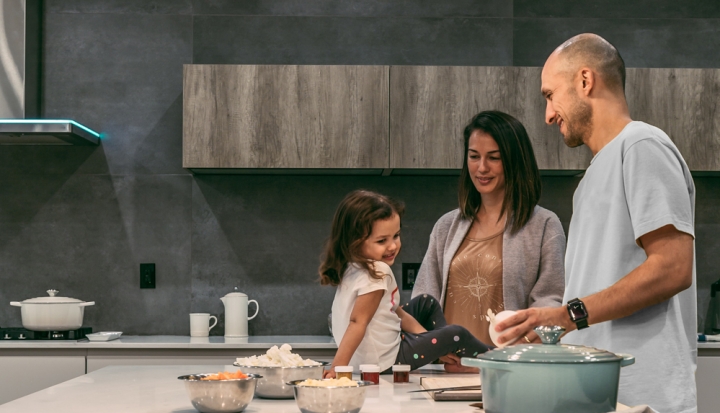Beth, a mother of four ages 5 to 12, admits that her children may see her as June Cleaver. “I don’t know that they’ve ever seen me in my pajamas in the morning,” Beth says. “By the time they get up, I’m showered and dressed with my makeup on.” Far from being an aspiring 1950s housewife, however, Beth explains that getting up an hour before her children is something she does for herself—not her kids.
“Once they get up, my life is crazy,” she says. “Taking the time in the quiet, before that first kid wakes up, gives me the peace I need to start the day.”
For parents, peace can be elusive. New parents struggle to have a thought or sleep for more than three hours without a baby interrupting. Parents with toddlers and preschool-age children can feel life has become a test of wills—from putting on shoes to getting in the car, suddenly nothing is easy anymore.
School conflicts snake their way into family life, and a once-close husband and wife can find that sheer speed of life with children and teens can reduce their once-thoughtful conversations to barked instructions.
Yet amid the noise and the chaos, most families enjoy pockets of peace—those times when everything aligns—and we glimpse the family we’d like to be all the time. Upon receiving the Nobel Peace Prize in 1979, Mother Teresa of Calcutta was asked, “What can we do to promote world peace?” She answered, “Go home and love your family.”
If family peace can bring about peace on earth, as Mother Teresa says, we better figure out how to get there.
Peace within the parent
As my friend Beth intuitively understands, we cannot lead our children toward peace if we ourselves are feeling unsettled. When family life starts leaning toward the decidedly unpeaceful, our first instinct may be to look toward the child who seems to be causing the most problems—the 7-year-old who is incessantly tattling; the sulking teen.
Yet if we first check for peace in our own heart, we may find that fear, stress, or anger have taken up residence there instead. Peaceful parents can better build a peaceful household. “I find that just lighting a candle on the kitchen counter and praying for a few minutes in the morning set a completely different tone for my day than when I don’t make time for it,” says Carol, a mother of four.
Peace in the marriage
If the path to peace in oneself is spending some time in silence each day, the key to peace in a marriage is just the opposite—communication is vital. Spouses who talk well with each other will be effective co-leaders of their family and are more equipped to help the rest of the family communicate peacefully as well. The Handbook for Today’s Catholic Family (Liguouri) recommends that married couples spend two hours a week in true dialogue. “My husband and I don’t spend anything close to two hours a week in real dialogue,” says Amy, mother of three school-age children. “But I do notice that when we take 15 minutes to talk about anything beyond the immediate schedule—our future plans, or our faith, or something else that’s serious—I feel taken care of. And when I feel taken care of, I am better able to take care of our children. The whole family benefits when we talk more.”
Peace in the family
“Pockets of peace” are most likely to occur when everyone in the family is present to the same event. Arguments are most likely to break out during times of transition—as some members of a family move from one activity to another.
Building more small events into family life is one way of making room for peace. “We recently had a fire together on a Friday night,” says Anne, mother of three. “Everyone just enjoyed roasting marshmallows ad talking outside. It was so simple—and everyone was so happy—as I was sitting there I wondered why we didn’t do more of this.”
This article was originally published in the January 2009 issue of At Home with our Faith.
Image: Unsplash cc via Rustic Vegan















Add comment